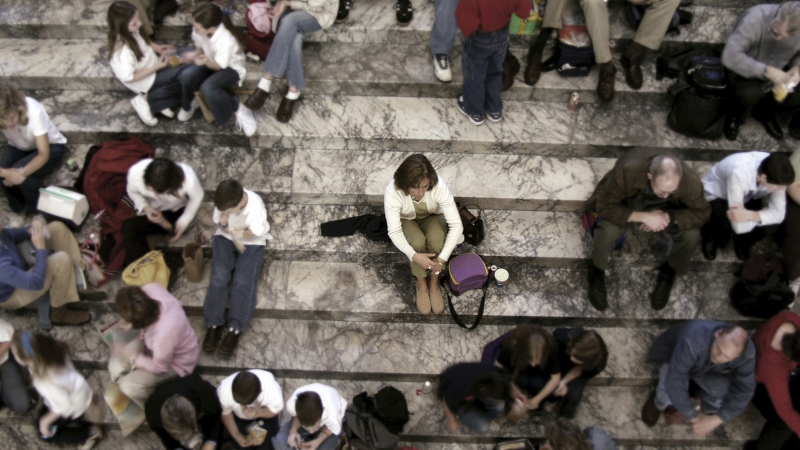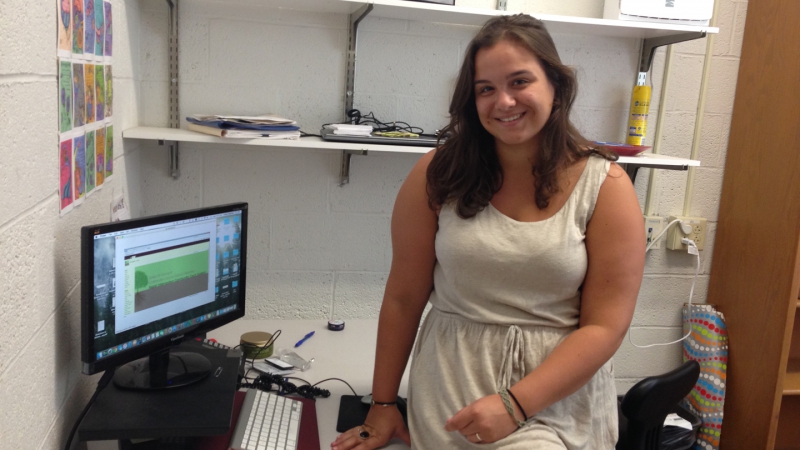After nearly three months of stay-at-home orders, the State of Vermont is allowing the reopening of early childhood education centers and summer camps under strict guidelines. Sending kids to pre-school, daycare, and camps— and potentially back to school in the fall—will likely bring up a wide range of emotions for children and families.
A panel of mental health experts from the University of Vermont and UVM Medical Center recently participated in a webinar titled, “Caring for Children’s Mental Health as America Reopens.” The webinar offered guidance for how parents can support their children’s mental health as states reopen and changes take place.
Andrea Green, M.D., a pediatrician at the UVM Medical Center and professor of pediatrics at the UVM Larner College of Medicine, says that the principles learned over the past few months will remain the same as the country reopens.
That includes wearing a cloth mask, washing hands, practicing physical distancing, staying home if sick, and calling a health care provider if a parent or child has any symptoms of COVID-19. While infection rates are relatively low in Vermont, anyone in the state without symptoms can now be tested at a pop-up location.

As of June 1, Vermont childcare centers were permitted to reopen. Green says the benefits to sending a child back to early childhood education centers include re-establishing in-person, nurturing connections, re-creating routines and structure, and rebuilding and enhancing a child’s social-emotional skills.
While plans for preschools, elementary schools, high schools, and colleges reopening in the fall remain uncertain, Green says parents can reassure their children that people are working hard to reopen schools in a way that is safe for everyone.
Whether a child returns to pre-school, elementary or high school or college, Green says parents and children can reflect upon previous experiences that involved transitions.
“Think about a transition that happened already,” Green says. “That first day of school, first day of daycare or first day of camp last summer. How did you feel about it as a parent, how did your child feel about it? What were those emotions you experienced? Remember that transition you experienced in the past, and draw from that experience.”
The Good, The Bad, The Ugly

Andy Rosenfeld, M.D., a child psychiatrist and assistant professor at the UVM Larner College of Medicine, pointed out in the webinar that everyone has good days and bad days—as well as good moments and bad moments. Some days and moments are downright awful.
Rosenfeld offered thoughts, emotions, feelings, and strategies to help families embrace or work through those times.
The Good
Thoughts: I am loved. I am safe. I can help others.
Emotions: Contentment. Joy. Peace
Physical feelings: Light. Energized. Awake.
Strategies:
- Help others, be the soothing energy for someone else whose energy is depleted.
- Create self-care routines for sleep, nutrition, movement, creativity, connection. Find your fancy and make it daily.
- Find your flow. Do activities that replenish. When you work with all your energies and capabilities in harmony, you can’t help but inspire and support others.
- Practice gratitude: Journal three good things from your day. Write a thank-you note. Send a grateful text.
- Practice mindfulness: Experts say as little as one minute counts. Even one moment counts. For one moment, take a breath, and pay attention. Look up at the sky and see it. Look into the eyes of a loved one, say nothing, and be in the moment.
The Bad
Thoughts: I don’t know how to do this. This isn’t fair. Life will never be the same. I can’t keep up.
Emotions: Worry. Anger. Sadness.
Physical feelings: Heavy. Tense. Uneasy.
Strategies:
- Name your feelings, consider writing it down or journaling.
- Seek support wisely.
- Stick with the routine.
- Notice your accomplishments.
- Listen to someone else’s troubles. We’re all in this together.
- Ask yourself: Am I prioritizing the important stuff? Replace frenzy with flow. Do activities that replenish you.
The Ugly
Thoughts: There’s something wrong with me. Life is pointless. It’s all his/her/their fault.
Emotions: Shame. Blame. Rage. Hatred.
Physically: Dizzy. Disconnected. Miserable.
Strategies:
- Choose your environment wisely. Avoid people and places that amplify or take advantage of your ugly feelings. Stick with those who see past your feelings.
- Name your feelings and share them with your favorite person.
- Safety: Have a plan to avoid things that could be dangerous to you or loved ones.
- Fall back on routine. Keep your meal and sleep schedule, make your bed every day.
- Compassion: It’s not their fault. This could happen to me. They deserve help.
- Self-compassion. It’s not my fault. It could happen to anyone.




